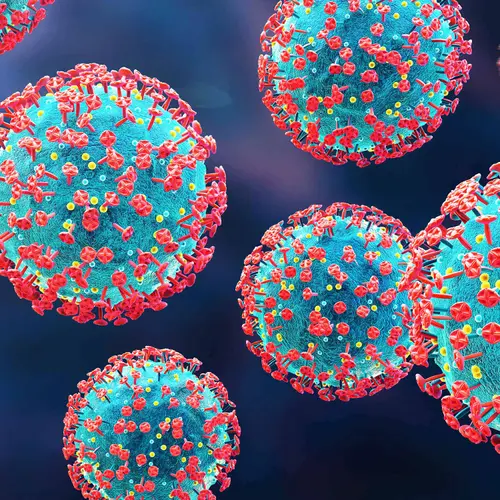Your respiratory system includes your nose, sinuses, throat, and lungs -- the parts of your body that help you breathe. If you have a weakened immune system due to HIV -- which can happen if you're not on top of your treatment the way you should be -- you’re more likely to have respiratory symptoms than people who don’t have the virus.
As with uninfected people, the most common symptom is a runny nose. More serious respiratory symptoms in people with HIV are shortness of breath and coughing. Your cough might be dry, or it may bring up sticky mucus (phlegm).
Lots of things can cause these problems in someone with HIV. For example, you might get a sinus infection or bronchitis because your immune system can’t fight it off. The common cold viruses, influenza (flu), and COVID are also possible concerns. But the reason you get them might have nothing to do with HIV. For example, things like age, smoking, or drug use can also cause respiratory symptoms for everyone.
Common Infections
These conditions often happen to people who don't have HIV, as well. But if you do have the virus, they can lead to more serious issues.
Odds are you’ve had a few sinus infections or bouts of bronchitis. Both are more common -- and often more severe -- in people with a weaker immune system due to HIV. Doctors usually treat them with antibiotics. But they may be harder to cure if your defenses aren't as strong.
A sinus infection (your doctor may call it sinusitis) usually starts like a cold, with a runny, stuffy nose that makes it hard to breathe. Saline nose drops and warm compresses can help ease congestion. If your infection lasts more than 1 or 2 weeks, call your doctor.
Bronchitis happens when the tubes that carry oxygen from your windpipe to your lungs become inflamed. This can bring a cough, trouble breathing, and a lot of mucus. Your chance of getting bronchitis is much higher if you smoke. Talk to your doctor about ways to quit.
Opportunistic Infections (OIs)
OIs are severe infections that usually happen in people with weakened immune systems.
Antiretroviral therapy (ART) lowers the amount of virus in your body and keeps your immune system stronger. So OIs are less common than they used to be. But you can still get them, especially if you’re not on ART, you don't take it regularly, or it’s not working well for you.
Many OIs attack the lungs. Examples are:
Cryptococcosis. You can find the two types of fungus that cause this infection just about everywhere in nature. Most people who breathe in the spores never get sick. But when your immune system is weak, cryptococcosis can damage your lungs.
Histoplasmosis. You get this lung infection from a fungus found in bird and bat poop. Your symptoms may be mild, or they could be serious. One complication, called acute respiratory distress syndrome (ARDS), is life-threatening.
Mycobacterium avium complex (MAC). This is a severe bacterial infection. You can find the bacteria that cause it in soil, food, dust, and water. Most people have this bacteria in their system and don't get sick. When your defenses aren't strong, it can affect your lungs and digestive system. It can also spread throughout your body. Antibiotics usually treat it.
Pneumonia. This is an infection in one or both of your lungs. Symptoms include a cough, fever, and trouble breathing. A one-cell organism called Streptococcus pneumoniae is a common cause of pneumonia in people with HIV. Ask your doctor about a vaccine to prevent it.
Pneumocystis pneumonia. An infection caused by a fungus called Pneumocystis jirovecii spreads through the lungs. Healthy people can have this fungus in their lungs and not know it. People with a weaker immune system can pick it up and get symptoms like a fever, cough, trouble breathing, chest pain, and chills.
Tuberculosis (TB). This lung infection spreads through the air when someone with active TB coughs, sneezes, or talks. It’s common in people with advanced or untreated HIV. TB causes coughing, weight loss, fatigue, and night sweats.
How to Stay Healthy
The best way to avoid OIs is to take your HIV medicine every day. There are also vaccinations available to help prevent the flu, COVID and pneumonia.
A healthy diet and regular exercise can help keep your immune system as strong as possible and keep all kinds of things at bay. Talk to your doctor for tips on what exercise and eating plans are best for you.
If you get an OI, your doctor can treat it with antibiotics or antifungal meds.

